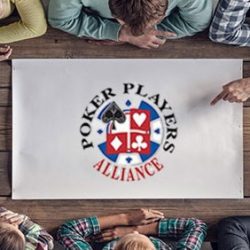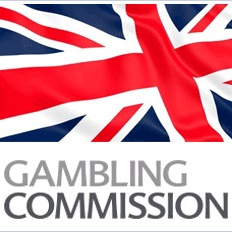PPA Survey Highlights Challenges of Legalizing Online Poker

A survey conducted recently by the Poker Players Alliance (PPA) aimed to assess the current climate of poker in the US, with the questions mentioned ranging from the game’s popularity to what people expect of the PPA itself. A number of other pertinent questions were also asked, including how people felt about the PPA moving into the world of sports betting and daily fantasy sports.
The organization has since put the results together and released some of its findings to the public. While they haven’t yet announced any changes to their tactics, they will no doubt consider some of the outcomes whilst assessing their overall mission going forward.
Licensing and Regulating Online Poker
Three of the main questions mentioned on the survey were regarding the opinions of people when it comes to legalizing and regulating online poker in the United States, as well as what lengths people would be willing to go to in order to help achieve such a result
1) When asked if they believed federal and state governments should allow online poker, 98% of people said yes.
This result is hardly unexpected given how most of the people surveyed have a connection to the PPA, and its goal of securing favorable poker laws for Americans. While supporting both live and online poker, the PPA’s primarily focus is on online poker, especially after the Unlawful Internet Gambling Enforcement Act (UIGEA) was passed in 2006. Since then, the PPA has switched to fighting almost exclusively for online poker legislation.
2) When asked what people would be willing to do to help legalize online poker, 79% of people said they would contact elected officials, 19% said they would donate money to the PPA, 15% said they would write to a local paper, 13% said they would visit their elected officials, 13% said they would help organize their local poker supporters, 11% said they wouldn’t do anything, and 7% said they would do something else.
If 79% of people did actually get in touch with their elected officials, then it would not be a stretch to say that politicians would soon take the issue a lot more seriously. Furthermore, the PPA offers a range of ways in which it is possible to get in touch with legislators. Unfortunately, though, a lot of poker enthusiasts are turned off by the regular barrage of messages coming from the PPA. In other words, asking people to do something almost on a daily basis can dilute the message, while making the cause seem less urgent.
Donations to the PPA are somewhat of an issue, too, especially when only 19% of respondents said that they would donate money to support the organization, and this isn’t a promise to do so, either. That is why the PPA also takes money from poker companies such as PokerStars, otherwise poker’s main lobby wouldn’t have the money it needs to support itself. Therefore, it would be better if the people complaining about the PPA placing the interests of such organizations first made the decision to donate more money themselves in order to receive a better level of representation.
The problem, however, is that the poker community is so fragmented it can be hard to gauge a consensus on what might be the better approach.
3) When asked why more states haven’t licensed and regulated online poker, 71% of people thought elected officials have misconceptions about online poker, 57% said elected officials don’t care about the issue, 43% of people felt that the gambling industry wasn’t working together properly, 22% felt not enough money was spent on lobbying, 20% felt poker players lack organization, 13% felt that people are making the wrong arguments for legalizing poker, 8% felt there’s not enough money made through online poker, 7% of people said poker players don’t care enough, and 14% feel the issue is something else.
The most popular answers are pretty accurate; as lawmakers generally don’t understand online poker, or don’t feel it is an issue important enough to deserve their attention. While legislators could be handed brochures and pamphlets enabling them to become better informed, this is a cost that the PPA might not want to take on, which goes back to the idea that lobbying is underfunded.
The idea the gambling industry doesn’t work well together is a pertinent one, too, as the American Gambling Association (AGA) only recently acknowledged it should help with regulating online gaming. There is a lack of cohesion between gambling groups and it hampers the whole industry. If lobbying organizations such as the AGA started to work closer with the PPA, it would also give them better access to funding and lawmakers.
As far as taking a wrong approach to legalizing gambling is concerned, it would be interesting to hear how those respondents feel the issue should be addressed. The PPA has spent 12 years advocating for the poker industry, and has adjusted its message accordingly during that time, so it’s not at all clear what they may be doing wrong.
In conclusion, there may have been more questions than answers generated by the PPA survey, but exploring the various topics mentioned and holding discussions on their findings is clearly important for the wider online poker environment, especially if we ever have any hope of improving the poker industry in the US.










